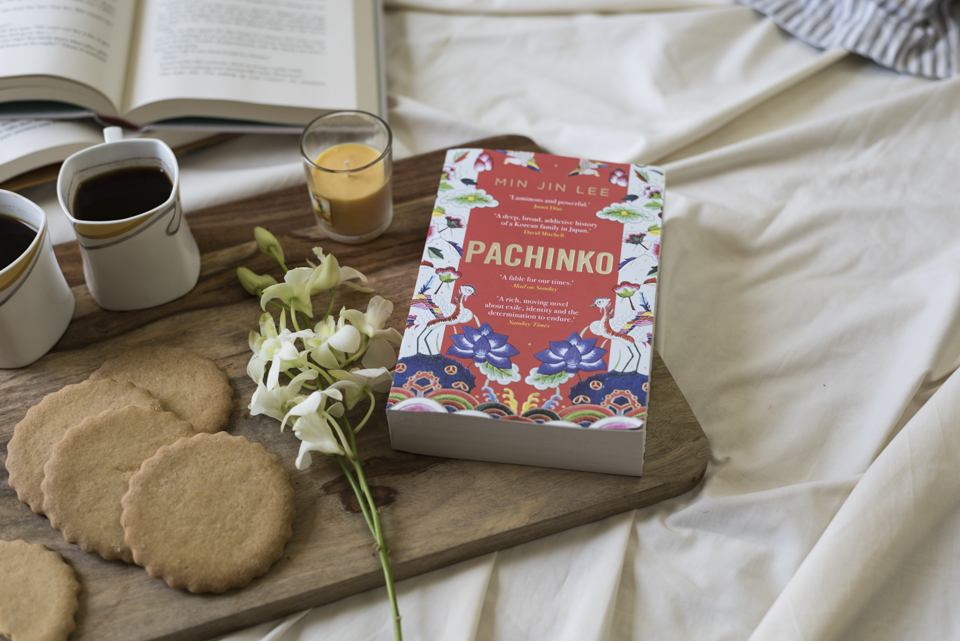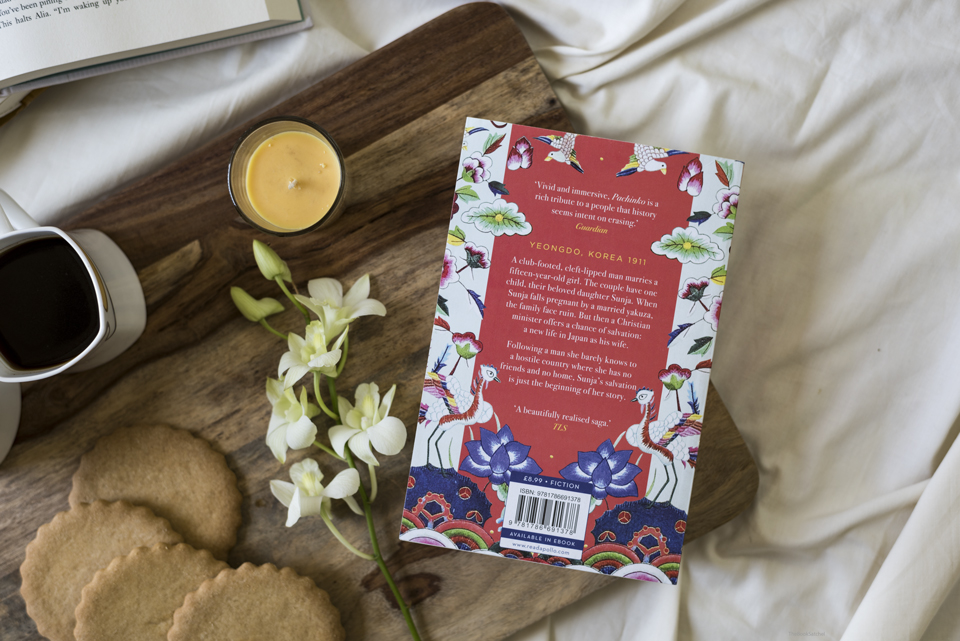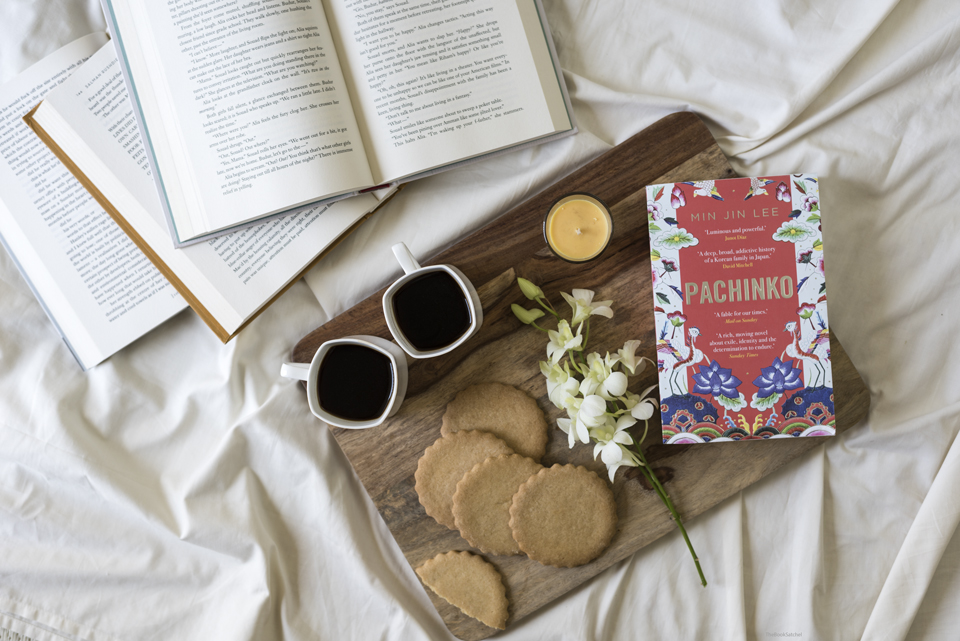Reader. Dreamer. Writer.
Pachinko is a multi generational saga that throws light into the plight of immigrants of Korean descent who stay in Japan.
Review
I bet you are thinking the same question that I thought of when I read the title. What is pachinko? I am not going to give you the answer either. It was a pleasant surprise for me to find it out and so will it be for you if you pick up the read.
Pachinko spans over four generations, beginning in Korea in 1900’s. Sunja is a young girl blindly in love with Hansu, an older Japanese man, She is deserted by her lover when she gets pregnant. In order to save the family honour, Sunja’s mother welcomes a proposal by Pastor Baek who thinks marrying Sunja is a way of repaying the kindness that Sunja and her mother showed him when he was ill. The couple move to Osaka, Japan to start a new life. But life does not become easy with the war, culture clashes and identity crisis.
Immigrants in another country
I would recommend the book because of how well the author handles the topic of immigration. In the publishing world, most of the immigrant stories concentrate around the plight of non-white people in America (usually), and hence this book is a breath of fresh air. The plight of Koreans in Japan made my heart shudder. They are treated as second class citizens. These Koreans are neither accepted by Korea nor by Japan as their true citizens. Such details were painful to read about. Most Koreans had three names, a Westernised name, a Korean surname and a Japanese surname (eg: Moses Baek, Mosazu Boku, Mozasu Bando). Korean children are bullied at school for their lineage.

A maze of themes
Another highlight of Pachinko is how effortlessly the various themes weave into one another. We have women who accept their place in society, as well as women who fight through their fate and become entrepreneurs; we have men with big ego problems and men who see everything as a business transaction. The range of emotions, characters and relationships is ambitious and well executed. I loved how the author shows the slow increase in wealth in the family- how traditional eating methods got replaced by Westernised dining tables and how the characters become more accepting of other ethnicities as they grow older. There is a huge undercurrent of whether the pachinko business is a morally satisfying one or not and this was handled very well too. Ultimately the book is about survival, how each generation fights its battles against a hostile country and environment.

But slightly abrupt
I was not impressed with the way the book was written. After a 100 pages, I as unsure if the novel was overhyped and checked whether the book is translated into English from another language, in which case we have to overlook a certain degree of abruptness. The narration was a detached one, plain in style, so I did not really connect with any of the characters. We follow Sunja’s life for the longest period but the book did not make me weep when she did. Min Jin Lee uses more of a tell-not-show technique and I think this makes the reader feel distant from the characters. I was annoyed when the book went into ‘he said; she said’ mode.
I could not understand Sunja. She seemed to be too accepting of her fate. Even though she dislikes taking help from Hansu, she did not seem to be furious about the wrong done to her. There is a passage where she thinks how Hansu’s wrong was a trigger that gave her the good things that followed. This really irked me. Hansu was a man who tricked her into sleeping with him and made her pregnant. That is just not okay.
A bitter family saga about Koreans struggling to survive in Japan @speakingtiger14 Share on X
Final Verdict
I would recommend the book because of the scope of the novel and how it opens up a world that you might have never read about previously. But if you are someone who is picky about how well written the book is, you might be a tad underwhelmed.
Other family sagas in historical fiction among new releases that you might like:
Song of the Sun God by Shankari Chandran

Title : Pachinko
Author : Min Jin Lee
Publisher : Apollo
Publication: 2017
Language : English
Pages : 537
Rating : 4/5
Disclaimer : Much thanks to Speaking Tiger for a copy of the book. All opinions are my own.










Resh…I did enjoy pachinko but I did feel that it was like a patch work of sorts! But overall there was so much information in the book tht I didn’t know about. I loved it! Have you read Snowflower and the secret fan? It selves into 19th century China and women’s place in the society at a high level but it was another book which was enjoyable and informative…
I felt the same about being a patchwork. I found the transitions from scenes to be abrupt. However I was okay with the information. I want to read Snow flower some day. Is it the novel by Lisa See? I remember many people recommending the book to me when I read See’s The tea girl of Hummingbird lane earlier this year.
I was waiting for this review. Sounds so interesting with a fresh backdrop for reading, but I personally dislike when the writing is detached from the emotions of the characters, makes me difficult to get hooked to it.
Yes, that was a problem I had with the book. the characters are well described and they are fully fleshed out. Yet I felt that there was a lack of connection with the characters. You can pick it up for the historical aspect some day.
Thanks as always for your review Resh! I’m currently about to finish the book and I resonate with what you said about patchwork and abruptness. I feel like so many heavy things were just dropped on the reader (to say), like what happened to Noa. I do appreciate the immigration experience though, so that IS indeed a breath of fresh air.
I haven’t put this on my TBR up until now, but I think the setting and fresh immigrant perspective is very attractive. I think I might try it. Wonderful review!
I’ve seen this book around a lot and I’ve been interested in giving it a try, especially since it’s a pretty short one. I’m not sure I’ll love the writing style you’ve described, but I am eager to see a different view of immigration than the norm. Thanks for sharing your thoughts!
I hope you will enjoy the book. Let me warn you that it isn’t a short book. But I would still recommend it for the historical perspective of Koreans in Japan.
Identity, identity, identity… The 21st century looks set upon being worse than the past on racism and abuse… (Maybe they are just synonyms?). Thank you for the review.
(Was that jasmine in the photo?) 🙂
You are welcome. Pachinko is definitely one with an important historical context. And no, that isn’t jasmine. Have a good day. 🙂
You too Resh… (Thinking, if it’s not jasmine…) 😉
Wonderful review Resh! I’ve been wanting to read this book for a while now. It’s seems a bit heavy, but I enjoy reading books about the immigration experience.
I hope you will love the read. Pachinko offers a good perspective on how the Koreans were treated in Japan
I’m hoping I’ll be able to look past the writing style since some Asian writing does tend to be more tell less show, esp Chinese and Korean. I’m glad you enjoyed everything else though. ^_^
I will look forward to your thoughts on the book. I liked how elaborately Min Jin Lee showed the problems faced by Koreans.
I let you know wen I post. ^_^
I think being a bit used to Japanese novels’ rather flat narration I’d be OK with this, and it does cover a topic I’ve never read about before. I was interested in this comment of yours: “In the publishing world, most of the immigrant stories concentrate around the plight of non-white people in America (usually)” – I have read a lot of books looking at the white immigrant experience in e.g. Japan, North Africa, etc., but those are mainly non-fiction works, not novels. Interesting!
I’ve heard a couple of interviews with the author and find the idea of the story (which you’ve not avoided to allow readers to discover it for themselves) fresh and appealing. I wonder if that’s part of what you’re noticing about a sense of disconnect, in that it seems that was just what was happening culturally too, like they couldn’t quite get a sense of themselves living under those conditions and working with a “quick fix” kind of industry. This is one I definitely want to read, but I’m content to wait until I’m prepared to settle into the story (not this time of year – too many other new and shiny titles calling to me), so in the meantime, I enjoyed reading your response to it!
Pachinko sounds like such a unique book! It’s true that there are a lot of books on stories of immigration to America, but I haven’t read many about immigration from an Asian country into another Asian country. Korea and Japan share many cultural similarities, but it seems like this book focuses on exploring how the differences affect the Korean immigrants. I do know a little bit about both cultures, and I’m always searching for books that involve any kind of Asian culture intertwined with the story, so I’m excited to read this novel. I enjoyed reading your review!
I think in that case Pachinko is a must pick for you. It is very informative and honest about the plight of Koreans who have shifted to Japan
Okay now I want to know what Pachinko is! But also, I’m very intrigued by this book, because you’re right about the focus of most immigration stories and so stories like this get overlooked. It’s a shame about how abrupt the style is- but it sounds like it’s well worth reading nonetheless. Great review!!
Yes, I would still recommend the book for its historical context
I luv reading immigrant tales where I’m not familiar with either the destination country or the country of exit. This is on my TBR but, sigh, soooo many holds at my library I’ll probably get to it in 2019 🙁
That is what I loved about this book. It is very unlike the US immigrant stories about which many many books are written. Pachinko as a book made me realise that we humans are very very possessive about our country borders. It is pretty huge. So I would advise putting it aside for 2019. I think year end is always busy for everyone, right? (yes, for me)
I won’t say what Pachinko is, since I don’t want to spoil anything for anyone, but it was kind of a mini-craze in California at least, in the 1970’s. My career navy father, like many, many others brought us one back from Japan. Made us very popular with the other kids for quite a while.
Thanks for this review.